Will AR come out of the entertainment sphere to invest all aspects of our private and professional lives ?
Could software engineers be on the top of the game right now ? Over the last years, the major tech companies have invested in virtual and augmented reality. Google (which just released a new « Live view » option on Maps), Facebook, Apple… all the giants made in USA seem to envision a future around AR. Rumors even suggest that Apple is working on his first AR headset to come out in 2023, while Marc Zuckenberg bets on an « AR breakthrough » for the next decade.
Virtual Reality Technology VS Augmented Reality
It seems that in the eye of the major tech players, VR remains more limited to a public of gamers while AR could truly implement itself in our everyday lives. So far, AR’s most popular use has been mainly app-centric, such as Pokemon Go or IKEA App. But imagine a future where technology would be naturally part of your environment and actions without the need to log in first and experience it through a smartphone screen. Can we envision an « effortless AR » ? Clearly the big players of the tech industry do. Even though the first attempts such as Google’s Glass didn’t meet the success expected, tech companies keep on developing and improving the AR devices of tomorrow.
Some argue that Glass was ahead of its time but not advanced enough technologically speaking to justify both its price and the fact of wearing futuristic glasses on our head all day-long. Usability and design are therefore the new mantra of Google’s competitors as Apple, Microsoft and Facebook are all racing to release the perfect AR product. This race for leading the AR market consequently brings up massive recruitment. Job offers in the AR/VR category have taken off over the last 12 months according to the website Hired : from 1,000 to 3,000 per company with Facebook on the top.
Key figures :
- a 1,400 percent growth in interview demand for AR/VR engineers in 2019
- the average wages for these positions range from $135,000 to $150,000
- more than 7,000 AR/VR inventions patented globally in 2019
- $19 billion of global spending on augmented and virtual reality this year, a growth of 79% (including individual shoppers, companies, governments and other end consumers)
Education to keep up with the demand
With the rise of AR/VR positions comes the rise of new skills needed. In order to meet the hiring demand, more and more engineers rely on self-teaching tools to fulfill the breaches on their resume. In fact, Hired’s survey revealed that AR/VR reached the second position as most desired field to learn about. Among the skills to master, AR/VR requires to work with specific programming languages such as React, Java, C++ and SQL.
VR is definitely changing our entertainment experiences but only time will tell if it can truly become part of our daily life, impacting the ay we consume, drive, work or even meet people. Considering how much companies invest in AR/VR to lead the market, we should expect more and more immersive features to appear.






